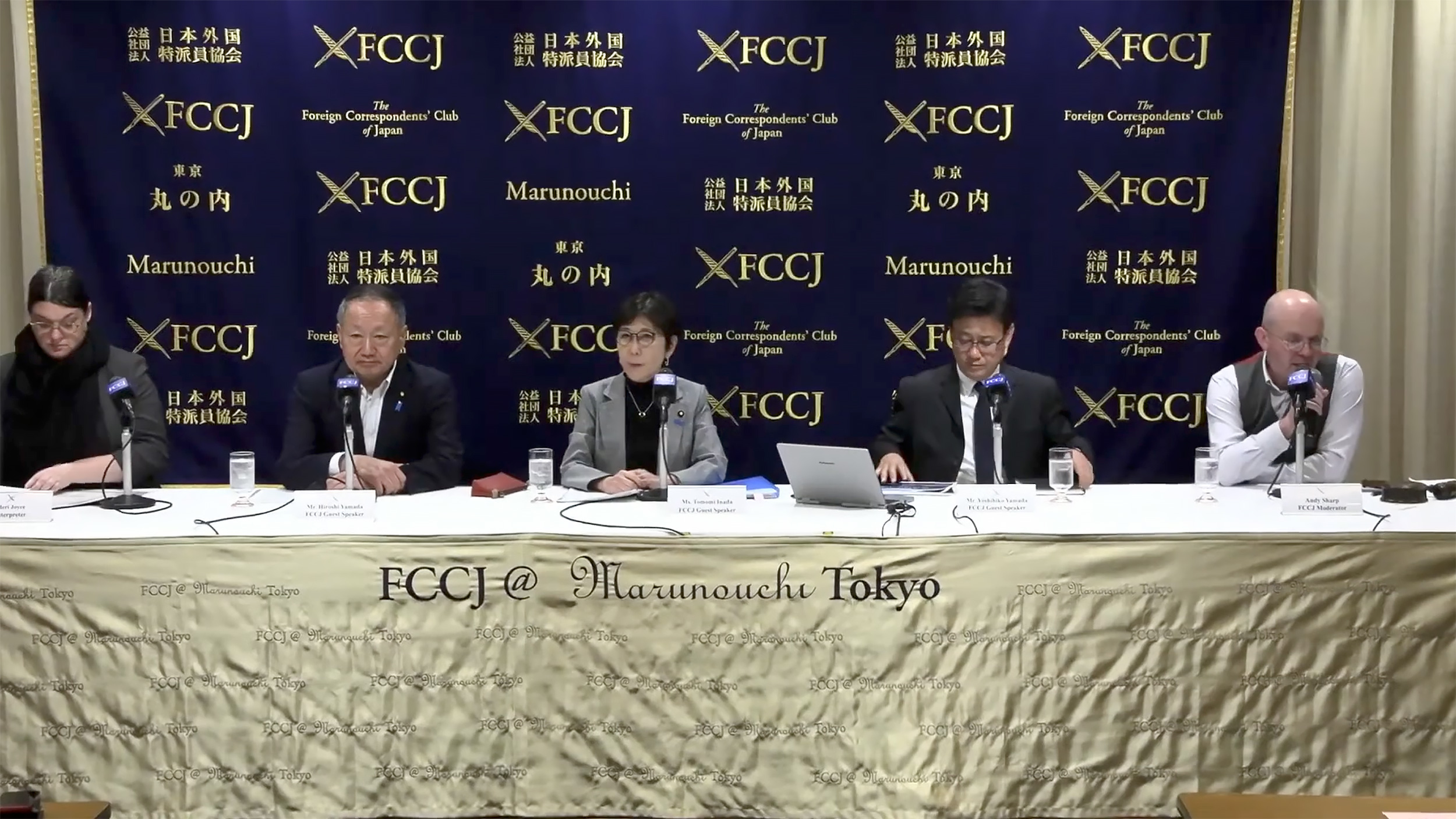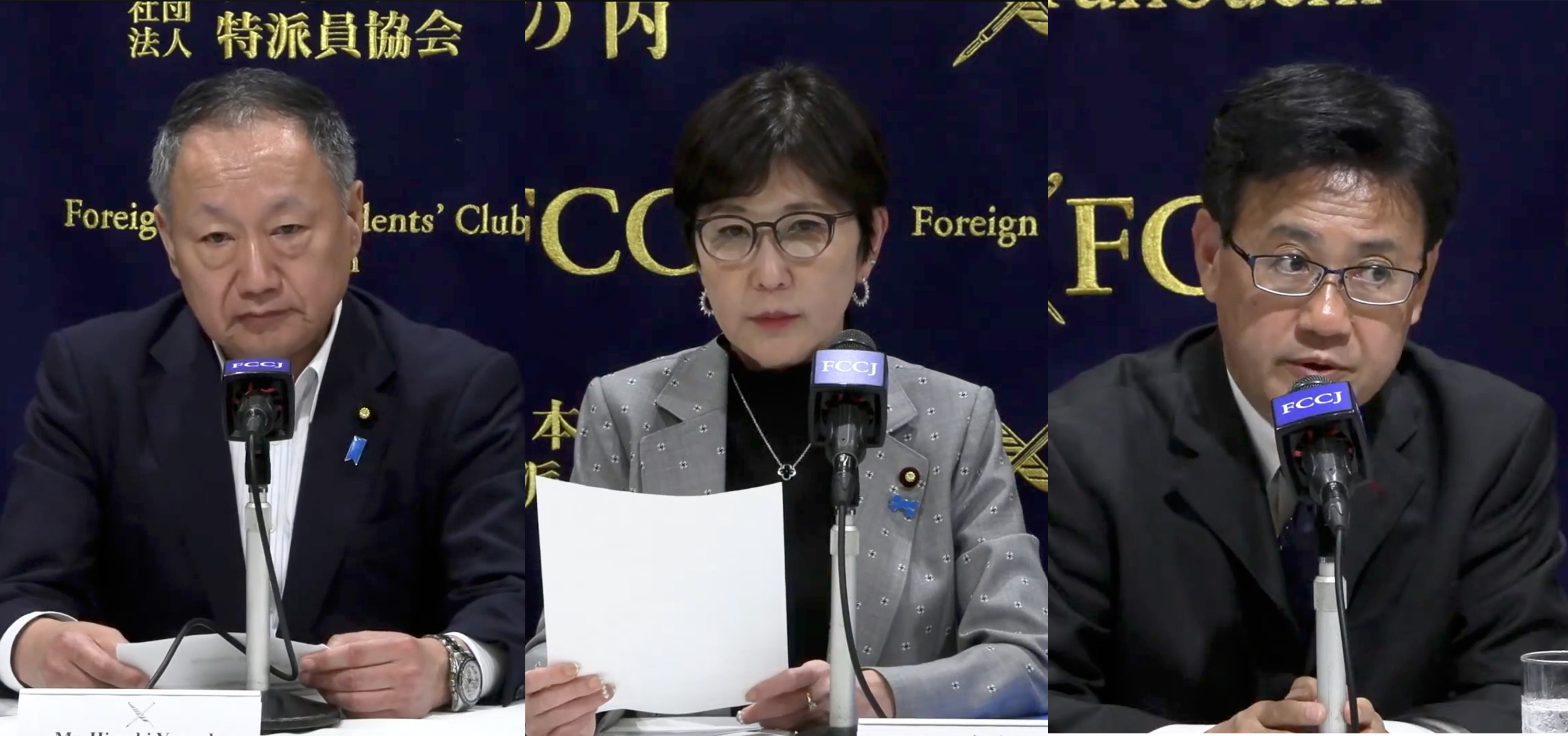Issue:
June 2024
Japanese lawmakers’ visit to waters near the uninhabited islets ups the ante in dispute with China

Territorial disputes are an ongoing theme not only in Japan, but in the whole of East Asia. Japan has long claimed the Takeshima/Dokdo islands and the Kurils/Northern Territories, but these are controlled by South Korea and Russia, respectively. There is little Japan can do to recover them short of starting a war.
The Senkaku islands – known as the Diaoyu islands in China – are different in that they are administered by Japan while China has added them to its list of territories it believes should be under its control. To complicate matters, Taiwan also claims the islands, which are part of Okinawa Prefecture. The Senkakus are also different from the Northern Territories and Takeshima in that they are uninhabited.
Japan has sought to bolster the islands’ defenses with coast guard patrols, but China has responded in kind, even approving the use of lethal force. In February 2021, Business Insider reported: “On February 1, a new law granting the China's Coast Guard (CCG) the ability to use lethal force against foreign vessels in waters China claims went into effect.
“The law worries countries that have territorial disputes with China, especially Japan, where the chief concern is that it could lead to the use of force against Japanese vessels around the Senkaku islands. Hundreds of Chinese vessels, including Coast Guard and Navy ships, routinely enter the waters around those islands, sometimes behaving aggressively.”
China’s actions irritate Japan’s government and infuriate rightwing politicians and nationalists who, in turn, often go out of their way to provoke China.
The latest clash came at the end of April when five lawmakers took part in an observation cruise off the islands as members of the Senkaku Islands Research and Development Promotion Group. They included four MPs from the ruling Liberal Democratic Party, including the former defense minister, Tomomi Inada, and one from the Japan Innovation Party, or Nihon Ishin no Kai. The trip – the first involving lawmakers for more than a decade – was organized by Ishigaki city, the Japanese municipality with de facto administrative control of the islands.

At a press conference at the FCCJ on May 16, Inada said the research group had been formed “when armed vessels of the Chinese Coast Guard had been wrongfully navigating more than 100 days consecutively and repeatedly trespassing into our territorial waters”.
She added: “The objective of this parliamentary group is to encourage the Japanese government to promote environmental research and resource development in the Senkaku islands through creating legislation for research and development in the islands.
“The Japanese government's position is that the Senkaku islands are both historically and under international law an inherent territory of Japan, and that there exists no issue of territorial sovereignty. However, China began claiming the Senkaku islands after a United Nations study in 1969 reported the presence of marine resources on the seabed around the Senkaku islands.”
The islands are surrounded by rich fishing grounds, but Japan insists China only laid claim to the islands after a report in 1969 suggested the area might include oil reserves. Since then, China’s claims to sovereignty have become more aggressive, with frequent patrols – which Japan describes as intrusions – by the Chinese Coast Guard. While the lawmakers claimed the trip’s purpose had been to focus on resources and development, Inada made it clear it was also about territory and sovereignty.
“What I realized through this visit was the reality that the Chinese Coast Guard vessels are acting within our Japanese territorial waters as if to create or to act in a kind of law enforcement and that the Japanese Coast Guard is continuing its thorough efforts to firmly protect our territorial waters,” she said. “This confirmed my belief that it is necessary for Japanese parliamentarians to actually see firsthand the reality of this very tense situation.
“Based on this, we hope to support the activities of the Japan Coast Guard, both through legislation and also through budgetary means. In addition, the mayor of Ishigaki city is also seeking the need to conduct surveys, including landing on the islands, and so we would like to also support the mayor's call for this. I would like to conclude by saying that I am by no means anti-China.”
The Chinese Coast Guard tried to monitor the inspection trip by the lawmakers but were prevented from getting too close by 11 Japanese Coast Guard vessels.
Professor Yoshihiko Yamada from the School of Marine Science and Technology at Tokai University, who escorted the lawmakers on their observation cruise, said: “We can see that the Japanese Coast Guard's system of security and protection is rock solid. The Japanese Coast Guard is consistently conducting thorough patrols and protection of the waters. However, the Chinese Coast Guard persists in approaching the area closely. It is a fact that Japanese territorial waters are being violated and a diplomatic response is necessary.”
Fred Varcoe is a British freelance journalist. He was formerly sports editor of the Japan Times and Metropolis magazine, and has written on sports, music, cars and other topics for the Daily Telegraph, the Daily Mail, Billboard, Automobile Year, UPI, Reuters, the Japan Football Association, the International Volleyball Association and various websites.

